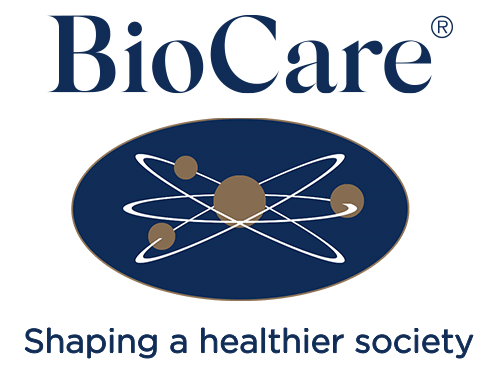
Methylation
Share
Methylation
It is a critical process for the correct functioning of our body, which
It happens millions of millions of times in a day. In recent years, research
on methylation and related genetic mutations has increased dramatically.
What is methylation?
Methylation is a biochemical process that involves the addition of a methyl group
(-CH3) to specific molecules such as proteins, DNA and RNA. Furthermore it is
dependent on the availability of several key factors such as methylfolate,
methylcobalamin and vitamin B6.
Methylation produces changes in the structure and function of molecules that
are activated, which can have an impact on gene expression, metabolism,
the synthesis of neurotransmitters, detoxification, DNA repair, among others.
It plays a very important role for genetic regulation, allowing the
gene transcription or blocking it.
On the other hand, methylation is of utmost importance for metabolism and
elimination of toxins from the body, both compounds and heavy metals,
environmental toxins and other metabolic waste.
Methylation problems can be associated with: hormonal imbalances,
infertility, cardiovascular problems, some autoimmune conditions, asthma,
allergies, depression, Alzheimer's, chronic fatigue, fibromyalgia, among others.
Functions of methylation
- Regulation of mood and sleep through the production of
neurotransmitters such as: dopamine, serotonin, adrenaline and melatonin.
- Energy production.
- Hormonal regulation: healthy menstrual cycles.
- DNA replication support for growth and repair.
- Detoxification of environmental toxins such as heavy metals.
- Support the production of bile, necessary for the digestion of fats.
- Formation of myelin sheaths, very important for nerve health and
cognitive.
- Production of immune cells.
- Detoxification of histamine, associated with allergies and asthma.
- Synthesis of phospholipids, essential for cell membranes.
Factors that can reduce methylation capacity
- Nutrient deficiency: apart from methylfolate and methylcobalamin, others
Nutrients such as: zinc, magnesium, choline, vitamin B6 and B2 are necessary
for correct methylation.
- Poor digestion: when there is digestive discomfort or bowel syndrome
irritable or using some medications, nutrient absorption can be
see diminished.
- Stress: causes a significant load for methylation, both stress
psychological as well as physiological (frequent infections, imbalances in
glycemic levels, excessive exercise, etc.).
- Exposure to sugar and environmental contaminants.
Genetic mutations: The MTHFR gene mutation affects the ability of the
body to process homocysteine. This can cause complications
such as elevated levels of homocysteine in the blood, increased risk of
cardiovascular diseases such as high blood pressure, clots
blood vessels and increased risk of neural tube closure defects in
you drink.
Methylated B complex vitamins are the forms in which the
body absorbs and uses it better. For the same reason, these forms of
Vitamins are useful for everyone, since they are easily absorbed by the
body.
In the United States approximately 60% of the population has a defect
genetic that makes it difficult to convert folic acid into its active form,
necessary for methylation.
How to improve methylation?
- Reduces stress: through light exercise and relaxation techniques such as
yoga, meditation, etc.
- Sleep hygiene: try to rest and have proper sleep.
- Reduces exposure to environmental contaminants.
- Avoid tap water.
- If you can, use air filters in your home.
Dietary recommendations
- Includes a wide variety of green leaves, fish, shellfish, meat
good quality, nuts and seeds, eggs, among others.
- Promotes good intestinal health with a good diet.
- Limit the consumption of pro-inflammatory foods.
- Limit sources of sugars and refined carbohydrates to avoid sugar spikes.
glycemia.
- Avoid processed foods that are poor in nutrients.
- Includes anti-inflammatory foods such as: green tea, turmeric, vegetables
cruciferous, tomato, apple, citrus, etc. These have been shown to maintain
a balance in methylation and protect DNA.
The use of multivitamins that contain methylfolate and may be an option.
methylcobalamin to support methylation.

Do not hesitate to write to us on our social networks or email to obtain more information and to advise you on your case.
With BioCare start to really supplement yourself.
References:
